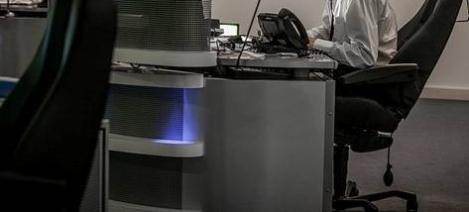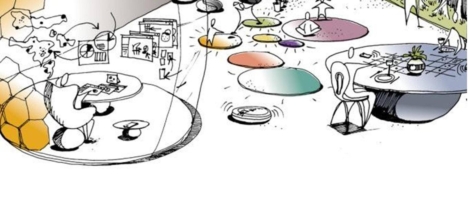June 18, 2015
Facilities managers must focus more on people and less on buildings
 A report from facilities management company Mitie claims that the design and management of too many workplaces are hampering the productivity of employees. Based on a survey of nearly 2,500 service sector staff carried out by Quora Consulting, the report comes to the perhaps unsurprising conclusion that facilities managers should prioritise people over buildings. The study found that younger workers are especially critical of their surroundings and working cultures. Two thirds of 20-29 year olds claim that their offices are not designed to optimise productivity. Finance and legal workers also feel let down by their workplaces with almost half claiming their workplaces do not optimise their productivity. These sectors were also emotionally disengaged with fewer than 35 percent identifying themselves as ‘emotionally attached’ to their workplaces.
A report from facilities management company Mitie claims that the design and management of too many workplaces are hampering the productivity of employees. Based on a survey of nearly 2,500 service sector staff carried out by Quora Consulting, the report comes to the perhaps unsurprising conclusion that facilities managers should prioritise people over buildings. The study found that younger workers are especially critical of their surroundings and working cultures. Two thirds of 20-29 year olds claim that their offices are not designed to optimise productivity. Finance and legal workers also feel let down by their workplaces with almost half claiming their workplaces do not optimise their productivity. These sectors were also emotionally disengaged with fewer than 35 percent identifying themselves as ‘emotionally attached’ to their workplaces.


























 TechNorth, the Manchester based technology hothouse devised as a regional counterbalance to London, is held in higher regard than the capital’s flagship TechCity development, according to research from recruitment firm Robert Half. The study of IT decision makers across the UK claims that the vast majority would prioritise working with Northern firms over their London counterparts, with 87 percent either ‘highly likely’ or ‘somewhat likely’ to place work with IT businesses in the TechNorth hub rather than those in TechCity London given the choice. The figure is 100 percent for IT leaders based in the North and to 95 percent for those in Scotland. More surprisingly, 80 percent of those based London and the South East said they would prioritise TechNorth, as did 75 percent in the South West and Wales.
TechNorth, the Manchester based technology hothouse devised as a regional counterbalance to London, is held in higher regard than the capital’s flagship TechCity development, according to research from recruitment firm Robert Half. The study of IT decision makers across the UK claims that the vast majority would prioritise working with Northern firms over their London counterparts, with 87 percent either ‘highly likely’ or ‘somewhat likely’ to place work with IT businesses in the TechNorth hub rather than those in TechCity London given the choice. The figure is 100 percent for IT leaders based in the North and to 95 percent for those in Scotland. More surprisingly, 80 percent of those based London and the South East said they would prioritise TechNorth, as did 75 percent in the South West and Wales.
 A new study published yesterday in the British Journal of Sports Medicine claims that office workers spend far too much time sitting, are suffering from a range of conditions and illnesses as a result and so should be encouraged to spend up to half of each working while standing. The report,
A new study published yesterday in the British Journal of Sports Medicine claims that office workers spend far too much time sitting, are suffering from a range of conditions and illnesses as a result and so should be encouraged to spend up to half of each working while standing. The report, 







